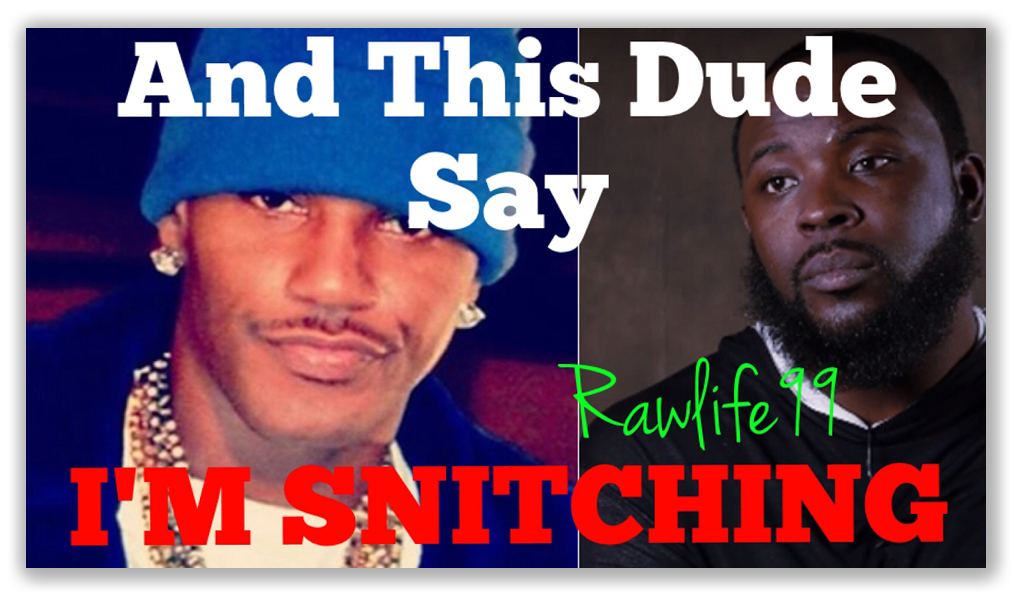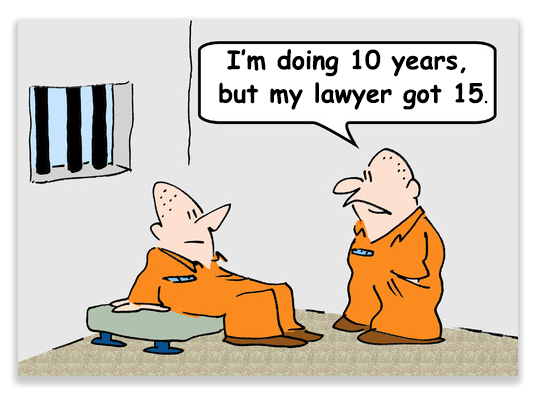We post news and comment on federal criminal justice issues, focused primarily on trial and post-conviction matters, legislative initiatives, and sentencing issues.

‘I AIN’T NO SNITCH – I’M JUST AN IDIOT’
Henry Underwood chose to represent himself at trial on a felon in possession of a firearm charge. After all, what do those lawyers know that Hank doesn’t?
 Well, for starters, try this one on for size. Hank took the stand to testify in his own defense to the 18 USC § 922(g) felon-in-possession count. He explained to the jury that the gun found under his car seat belonged to someone else, not to him.
Well, for starters, try this one on for size. Hank took the stand to testify in his own defense to the 18 USC § 922(g) felon-in-possession count. He explained to the jury that the gun found under his car seat belonged to someone else, not to him.
OK, so far, so good. But on cross-examination, the prosecutor asked the obvious question: if not Hank, exactly to whom did the gun belong? Hank tried to plead the 5th Amendment, saying he did not want to name the owner because he was no “snitch.”
You see, Hank, that dumb lawyer you didn’t want would have told you that by testifying, you were waiving your 5th Amendment rights. But Hank had jettisoned his mouthpiece as unnecessary. For his continued refusal to answer the prosecutor’s question, Hank found himself on the receiving end of a criminal contempt finding. Oh, yeah, and the jury found his testimony not credible and thus voted him guilty of the charged offense.
On appeal, Henry (now represented by counsel, a classic “too little, too late” decision if ever there was one, argued that his pretrial waiver of the right to counsel was not knowing and voluntary.
 Last week, the 7th Circuit gave Henry a lump of coal. The Circuit reviewed the four factors considered in determining whether a waiver is knowing and voluntary. The first is whether the court had made a formal inquiry into the defendant’s decision to represent himself. Hank argued that the court should have advised him of what his defenses were (and that he’d better be ready to answer questions on cross-examination if he took the stand). The 7th rejected that notion out of hand. The judge is not there to counsel the defendant.
Last week, the 7th Circuit gave Henry a lump of coal. The Circuit reviewed the four factors considered in determining whether a waiver is knowing and voluntary. The first is whether the court had made a formal inquiry into the defendant’s decision to represent himself. Hank argued that the court should have advised him of what his defenses were (and that he’d better be ready to answer questions on cross-examination if he took the stand). The 7th rejected that notion out of hand. The judge is not there to counsel the defendant.
The appellate panel also held that Henry’s “active participation at trial and regular consultation with standby counsel indicate that he knew the choice he was making when he elected to proceed pro se. Reliance on standby counsel reflects an appreciation for the difficulties of self-representation,” the Circuit held.
Besides, the Circuit said, Henry was no virgin. He had two prior felony convictions and one murder acquittal by a jury, “indicat[ing] he possessed knowledge of the complexities of procedure and trial sufficient to make him aware of the task she was undertaking.”
 Finally, the Court said, Hank “chose to proceed pro se after a disagreement with his appointed counsel over his defense and trial strategy. A defendant who waives his right to counsel for strategic reasons, including the decision to proceed without counsel due to differences in opinion regarding defense strategy, tends to do so knowingly… We therefore presume Underwood’s choice in this instance to have been strategic and intentional.”
Finally, the Court said, Hank “chose to proceed pro se after a disagreement with his appointed counsel over his defense and trial strategy. A defendant who waives his right to counsel for strategic reasons, including the decision to proceed without counsel due to differences in opinion regarding defense strategy, tends to do so knowingly… We therefore presume Underwood’s choice in this instance to have been strategic and intentional.”
If Henry thought that he could select which questions he was going to answer when he took the stand, he did not understand the 5th Amendment right against self-incrimination and thus had no business firing his lawyer.
United States v. Underwood, Case No 23-1303, 2023 U.S.App. LEXIS 33404 (7th Cir., Dec 18, 2023)
– Thomas L. Root








